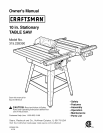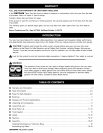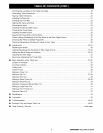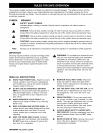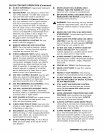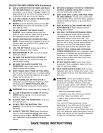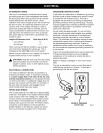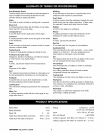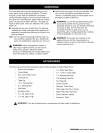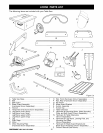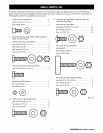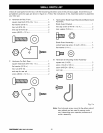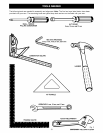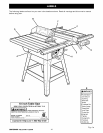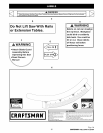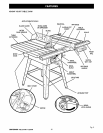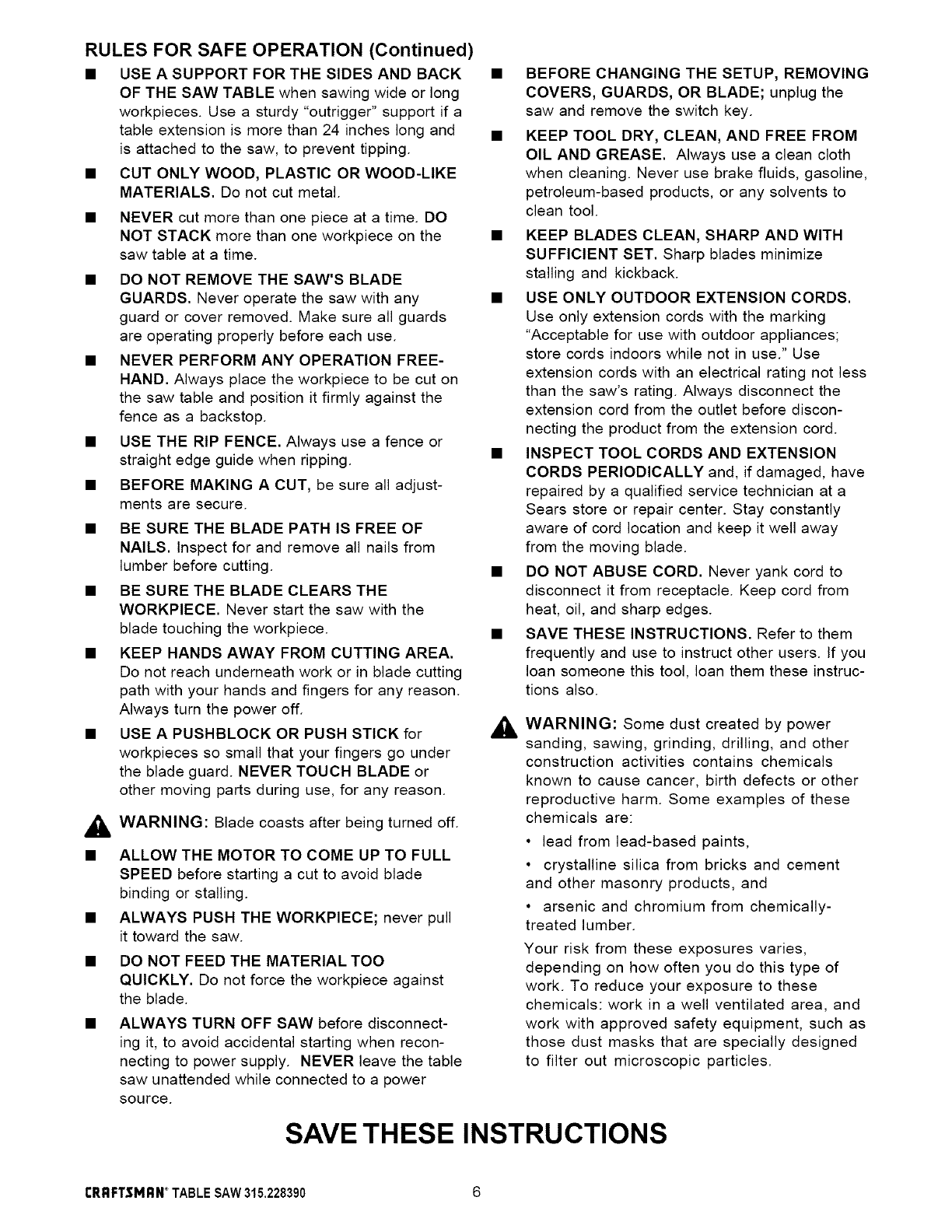
RULES FOR SAFE OPERATION (Continued)
• USE A SUPPORT FOR THE SIDES AND BACK
OF THE SAW TABLE when sawing wide or long
workpieces. Use a sturdy "outrigger" support if a
table extension is more than 24 inches long and
is attached to the saw, to prevent tipping.
• CUT ONLY WOOD, PLASTIC OR WOOD-LIKE
MATERIALS. Do not cut metal.
• NEVER cut more than one piece at a time. DO
NOT STACK more than one workpiece on the
saw table at a time.
• DO NOT REMOVE THE SAW'S BLADE
GUARDS. Never operate the saw with any
guard or cover removed. Make sure all guards
are operating properly before each use.
• NEVER PERFORM ANY OPERATION FREE-
HAND. Always place the workpiece to be cut on
the saw table and position it firmly against the
fence as a backstop.
• USE THE RIP FENCE. Always use a fence or
straight edge guide when ripping.
• BEFORE MAKING A CUT, be sure all adjust-
ments are secure.
• BE SURE THE BLADE PATH IS FREE OF
NAILS. Inspect for and remove all nails from
lumber before cutting.
• BE SURE THE BLADE CLEARS THE
WORKPIECE. Never start the saw with the
blade touching the workpiece.
• KEEP HANDS AWAY FROM CUTTING AREA.
Do not reach underneath work or in blade cutting
path with your hands and fingers for any reason.
Always turn the power off.
• USE A PUSHBLOCK OR PUSH STICK for
workpieces so small that your fingers go under
the blade guard. NEVER TOUCH BLADE or
other moving parts during use, for any reason.
,4_ WARNING: Blade coasts after being turned off.
• ALLOW THE MOTOR TO COME UP TO FULL
SPEED before starting a cut to avoid blade
binding or stalling.
• ALWAYS PUSH THE WORKPIECE; never pull
it toward the saw.
• DO NOT FEED THE MATERIAL TOO
QUICKLY. Do not force the workpiece against
the blade.
• ALWAYS TURN OFF SAW before disconnect-
ing it, to avoid accidental starting when recon-
necting to power supply. NEVER leave the table
saw unattended while connected to a power
source.
• BEFORE CHANGING THE SETUP, REMOVING
COVERS, GUARDS, OR BLADE; unplug the
saw and remove the switch key.
• KEEP TOOL DRY, CLEAN, AND FREE FROM
OIL AND GREASE. Always use a clean cloth
when cleaning. Never use brake fluids, gasoline,
petroleum-based products, or any solvents to
clean tool.
• KEEP BLADES CLEAN, SHARP AND WITH
SUFFICIENT SET. Sharp blades minimize
stalling and kickback.
• USE ONLY OUTDOOR EXTENSION CORDS.
Use only extension cords with the marking
"Acceptable for use with outdoor appliances;
store cords indoors while not in use." Use
extension cords with an electrical rating not less
than the saw's rating. Always disconnect the
extension cord from the outlet before discon-
necting the product from the extension cord.
• INSPECT TOOL CORDS AND EXTENSION
CORDS PERIODICALLY and, if damaged, have
repaired by a qualified service technician at a
Sears store or repair center. Stay constantly
aware of cord location and keep it well away
from the moving blade.
• DO NOT ABUSE CORD. Never yank cord to
disconnect it from receptacle. Keep cord from
heat, oil, and sharp edges.
• SAVE THESE INSTRUCTIONS. Refer to them
frequently and use to instruct other users. If you
loan someone this tool, loan them these instruc-
tions also.
A
WARNING: Some dust created by power
sanding, sawing, grinding, drilling, and other
construction activities contains chemicals
known to cause cancer, birth defects or other
reproductive harm. Some examples of these
chemicals are:
• lead from lead-based paints,
• crystalline silica from bricks and cement
and other masonry products, and
• arsenic and chromium from chemically-
treated lumber.
Your risk from these exposures varies,
depending on how often you do this type of
work. To reduce your exposure to these
chemicals: work in a well ventilated area, and
work with approved safety equipment, such as
those dust masks that are specially designed
to filter out microscopic particles.
SAVE THESE INSTRUCTIONS
CRRFI"$1_tRN_TABLESAW315.228390 6



